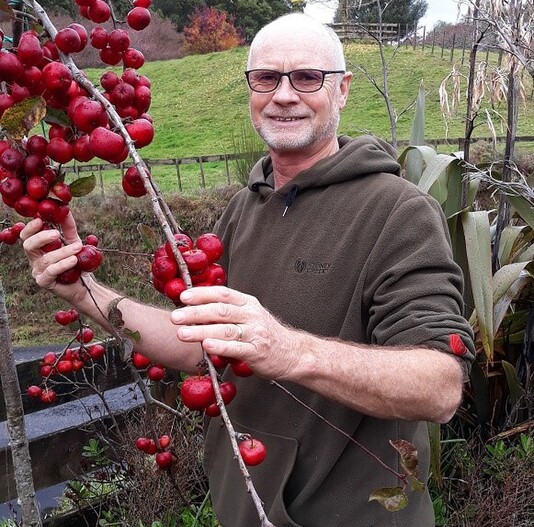Perrin Ag has appointed a senior horticultural specialist, as an increasing number of land owners consider land use change to take advantage of better returns.
Dave Whalley is the agribusiness consulting firm’s newest senior consultant, whose journey in commercial horticulture began in the late 1970s when he started an orchard cadetship in Te Puke.
With a Diploma in Horticulture from Lincoln University, Dave’s diverse career in the industry has seen him gain extensive experience in fruit and vegetable cropping, nursery production, landscaping, and turf and ecological restoration.
While he has practical hands-on experience with managing a variety crops, Dave knows what it takes to operate a successful business in horticulture.
“Horticulture is an attractive investment option, with the net return per hectare for Kiwifruit and Avocados significantly more than dairy or sheep and beef,” he says.
“According to the latest industry survey data¹, owner-operated dairy farm operations in the Bay of Plenty returned an operating profit of just under $2,000 per hectare at a $6.40/kgMS milk price. Higher milk prices will see this lift, but depending on the crop, net returns per hectare from horticulture can range from $40,000 to $100,000.
“The international market for dairy is buoyant and milk prices are nearing record levels. Many dairy farmers are considering how they can make this extra cash flow work harder for them. At the same time, increasing regulation is creating uncertainty amongst farmers, so some are diversifying to help spread risk and reduce environmental externalities.
“We are seeing a growing number of dairy farmers, including Māori entities, considering diversifying part of their on-farm portfolio into horticulture, particularly if they have areas of their farm that might be suitable or they farm in a proven production area.”
Dave says establishing a horticultural operation is a costly and complex business, but with solid financial backing and the right advice, it can be extremely lucrative.
“Selecting the right block of land in the right location for the right crop is crucial, so the existing farm might not necessarily be the best place to do it.
“You need the expertise to do a thorough analysis of the pros and cons and review aspects like soil type, climate, availability of labour, processing, expertise and contractor services, as well as the time commitment required by the farm owner. It might make more sense to buy a block in a region that has a proven track record in growing a particular crop.
“Most of the time it’s about maximising returns, but for Māori entities in particular, it can also create employment opportunities for whānau, so that needs to be factored into the equation.”
Perrin Ag managing director Lee Matheson says Dave’s role will involve helping landowners assess the feasibility of different options for land optimisation.
“An increasing number of farmers recognise that choice of land use isn’t necessarily an ‘either or’ situation and integrating multiple land uses within traditionally single sector operations can be a way to reduce their environmental footprint, diversify income streams and assist with succession.
“Dave’s appointment builds on the horticultural knowledge and expertise of our team, so we are well positioned to provide advice and guidance to clients who are pursuing business opportunities outside of their traditional farming businesses.”
Dave’s expertise also extends to riparian planting, which forms an integral part of farm environment plans for dairy and sheep and beef farmers.
“Over the last 10-15 years these industries have done some great work in terms of using riparian planting to reduce nutrient run off into waterways, exclude stock and minimise land erosion.
“With the Government recently committing funds to help broaden farmers’ uptake of integrated farm planning, our team expects to see more demand for expertise in this area.”
Dave says effective riparian planting is not as simple as buying some plants from the nursery and putting them in the ground.
“Riparian planting needs to be well-planned and well-managed from the beginning.
“Buying lots of plants that are cheap because they are small is often not the best policy, unless you have a stringent weed maintenance programme in place.
“While preparing the planting site is important, the subsequent 2-3 years of maintenance are also crucial to avoid plants being smothered with gorse, broom, blackberry or grasses. You need the expertise and manpower to do the job right.”
Dave started with Perrin Ag in December 2020. He is based in Rotorua, where he lives with his wife Jacqui, who also has a background in vegetable cropping.
